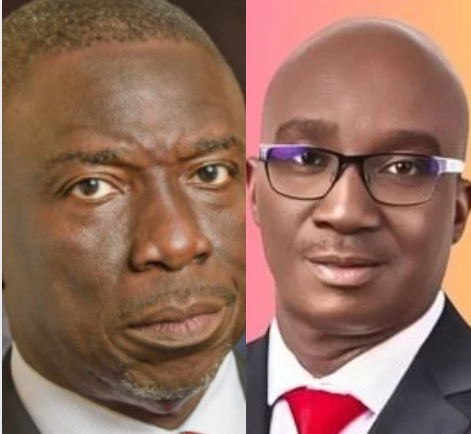The Edo State governorship election of September 21, 2024, concluded with the declaration of Monday Okpebholo of the All Progressives Congress (APC) as the winner by the Independent National Electoral Commission (INEC). Okpebholo secured 291,667 votes, defeating his closest rival, Asue Ighodalo of the Peoples Democratic Party (PDP), who polled 247,655 votes. This victory, however, became the subject of a protracted legal battle initiated by the PDP and Ighodalo, contesting the election results. Their petition, filed before the Governorship Election Petition Tribunal in Abuja, alleged widespread irregularities, including over-voting, non-serialisation of ballot papers, inaccurate collation, and faulty computation of results across 765 polling units. They argued that INEC failed to comply with the Electoral Act, particularly regarding the serialization and pre-recording of sensitive election materials, thereby facilitating alleged rigging in favor of the APC.
The tribunal, presided over by Justice Wilfred Kpochi, meticulously examined the evidence presented by the petitioners, which included testimonies from 19 witnesses and 154 BVAS machines from 133 polling units. INEC, the first respondent, chose not to present any witnesses, while Okpebholo, the second respondent, called one witness, and the APC presented four. Despite the petitioners’ efforts, the tribunal dismissed their petition on April 2, 2025, citing a lack of substantial evidence to support their claims. The tribunal highlighted the petitioners’ failure to call crucial witnesses, such as polling unit agents or presiding officers, who could provide direct evidence of the alleged malpractices, rendering much of the presented testimony as hearsay. Furthermore, the tribunal noted that the submitted BVAS machines were not properly analyzed or linked to the specific allegations, essentially being presented without context or supporting expert analysis.
Dissatisfied with the tribunal’s ruling, the PDP and Ighodalo escalated their legal challenge to the Court of Appeal in Abuja. The three-member panel, led by Justice Mohammed Danjuma, delivered a unanimous judgment on April 26, 2025, affirming the earlier decision of the tribunal. The court dismissed the appeal, characterizing it as lacking merit, and echoing the tribunal’s observation that the petitioners failed to provide credible witnesses and documentation to substantiate their allegations. Justice Danjuma emphasized the collapse of the appellants’ foundational arguments due to insufficient evidence, thus justifying the dismissal of the appeal. This verdict effectively upheld Okpebholo’s victory, reaffirming his position as the duly elected Governor of Edo State.
Following the Court of Appeal’s decision, reactions from both sides of the political divide were swift. Asue Ighodalo, maintaining his stance on the alleged electoral irregularities, vowed to further pursue the case at the Supreme Court. Chris Nehikhare, the Publicity Secretary of the Edo State PDP Caretaker Committee, confirmed their intention to appeal to the highest court within the stipulated timeframe. Conversely, Governor Okpebholo, through his Chief Press Secretary, called for unity and urged Ighodalo and the PDP to accept the Court of Appeal’s verdict, emphasizing the need to move Edo State forward. He described the judgment as a victory for democracy and the rule of law, reflecting the will of the people. Okpebholo extended an olive branch to all political stakeholders, advocating for a focus on the state’s development over partisan politics.
Okpebholo reiterated his administration’s commitment to a people-centric agenda, prioritizing development initiatives in key sectors such as infrastructure, education, healthcare, and economic empowerment. He urged citizens to remain calm and assured them of his government’s continued dedication to serving their best interests. The governor’s call for unity and focus on governance underscores the importance of moving beyond electoral disputes and prioritizing the needs of the Edo people. The legal battle, however, is far from over, with the PDP and Ighodalo determined to exhaust all legal avenues, signifying a potential continuation of the electoral dispute at the Supreme Court.
The ongoing legal challenge highlights the complex interplay of elections, judicial processes, and political dynamics within Nigeria’s democratic framework. While the courts play a crucial role in adjudicating electoral disputes, the ultimate impact on governance and stability depends on the willingness of all stakeholders to accept judicial pronouncements and prioritize the collective good. The case also underscores the importance of electoral transparency and the need for robust mechanisms to address grievances and ensure the integrity of the electoral process.
The future of Edo State’s political landscape hinges on the outcome of the impending Supreme Court proceedings. The final verdict will not only determine the governorship but also significantly influence the relationship between the competing political factions and the overall stability of the state’s governance. The ability of the political actors to transcend partisan divisions and work together for the betterment of Edo State will be a critical factor in shaping the state’s future. The legal and political ramifications of this election dispute will undoubtedly continue to resonate within Edo State and potentially influence broader electoral reforms and judicial interpretations of electoral laws in Nigeria.


